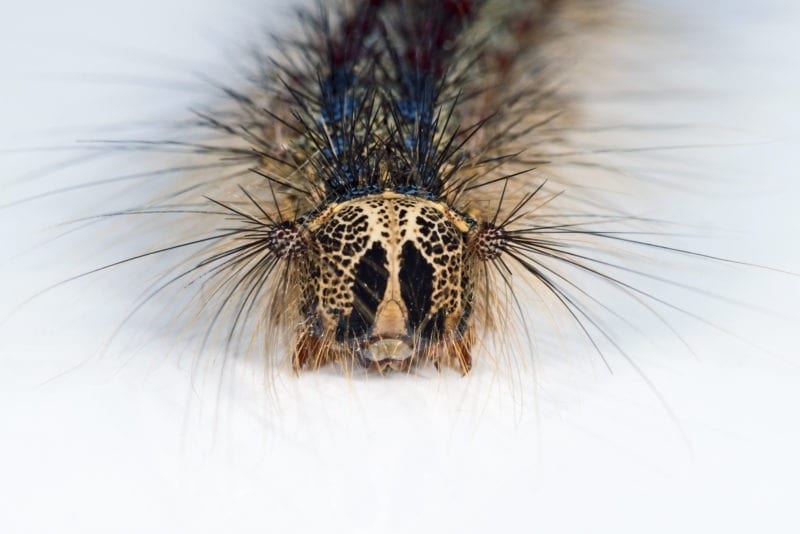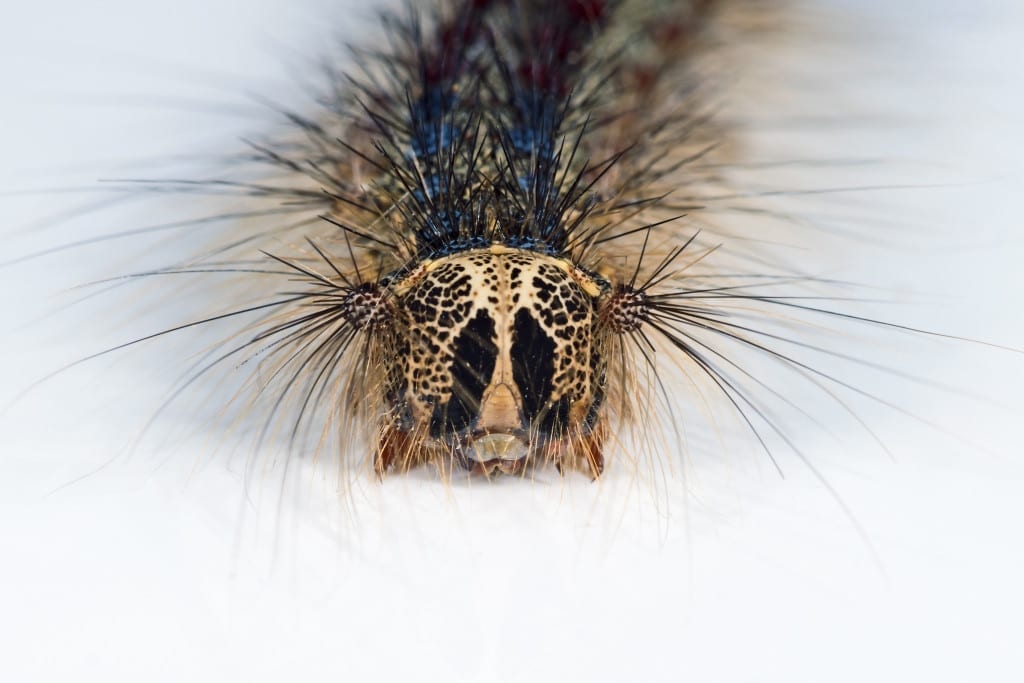An international research project funded by the EU’s Horizon 2020 program will develop new pest control methods that neither cause environmental pollution nor harm beneficial insects.
The economic cost of agricultural pests is extremely difficult to estimate, but biological threats such as insects and disease account for around 40% of all crop losses globally. The rising need for food worldwide necessitates ever more effective methods in the fight against agricultural pests. By 2017, the world is expected to spend more than 65 billion USD annually on pesticides. At the same time, there is a pressing need to develop “greener” pesticides that target damaging insects while sparing beneficial ones. An international consortium of scientists, including participants from the Institute of Zoology at the University of Cologne headed by Professor Reinhard Predel, is hoping to develop new, eco-friendly pesticides that will render numerous pest insects less destructive. Horizon 2020, the EU’s research and innovation fund, has granted 7 million euros to the project nEUROSTRESSPEP, which will study developments in the hormone systems of selected insect species. The researchers are aiming to influence these systems with artificial hormone-like substances, so called peptidomimetics. Neuropeptides are a highly adjustable group of hormones that help the brain and tissues communicate with each other. The project will be launched in June and run for four years.
“At the Cologne Biocenter, we have outstanding conditions for structural clarification and only need a single specimen of an insect to be able to identify up to 100 neuropeptides found in the species,” Predel explains his institute’s role in the project. “These questions perfectly fit into our research focus.” The pests being targeted in this study include moths, locusts, aphids, flies and beetles, which either damage crops directly through eating, or indirectly by spreading plant viruses.
Traditionally employed pesticides are poisons that make no difference between damaging and beneficial insects or spiders. Moreover, despite the use of these chemicals, individual specimens of the insects generally survive and grow resistant to the pesticide. Their natural predators are often affected much more severely because they exist in significantly fewer numbers. As a result, in the next generation the insect population explodes because the number of natural predators has been diminished. “Our goal is to reduce the fitness of the damaging insects to prevent a population explosion,” Predel says. Other insects are not affected. “We will be able to specifically target the insect whose population we want to diminish; the relation between natural predator and insect remains unaltered and beneficial insects such as honeybees are no longer harmed.”
To develop artificial neuropeptides, the researchers have to identify the natural prototypes. “We will investigate if the species in question have unique specialized systems. In short: we want to use the unique nature of the species as the point of application.” Neuropeptides are very well suited for this strategy, as species often have unique neuropeptide sequences. Once the scientists have identified these sequences, they can develop structurally similar artificial messenger substances and stabilize them in such a way that the insects cannot break them down quickly. “If these artificial hormones cannot be broken down, the organism is destabilized. Its water balance, reproduction and nutrition intake are disturbed.”
Read more: Greener pest control
The Latest on: Greener pest control
[google_news title=”” keyword=”Greener pest control” num_posts=”10″ blurb_length=”0″ show_thumb=”left”]
via Google News
The Latest on: Greener pest control
- Ex-Pest Control Expert Exposes Biggest Industry Secrets That Could Save People Tons of Moneyon April 25, 2024 at 9:20 am
One ex-pest control technician used his social media platform to expose what goes on behind closed doors. And his rant will not only save you money but it will protect you from summer's pesky bugs.
- Beautifying London: Handy Gardeners’ Green Missionon April 25, 2024 at 3:09 am
In the dynamic cityscape of London, Handy Gardeners has emerged as a transformative force, infusing the urban environment with lush, verdant landscapes. With over a thousand gardens under their care, ...
- Itching for a new venture? Here are the 20 best US metro areas to start a pest control business in 2024on April 24, 2024 at 9:38 am
Marking April as National Pest Management Month, Pest Gnome ranked 2024's Best Metro Areas to Start a Pest Control Business.
- 10 best pest control companies in Green Bay, Wisconsinon April 21, 2024 at 5:00 pm
In Green Bay, flies, spiders and snakes are common pests. While you can try DIY removal and prevention methods, an active infestation usually requires the help of a pest control company.
- Safe Pest Control Introduces Non-Toxic Pest Control Services In Sydneyon April 19, 2024 at 8:24 am
Safe Pest Control in Sydney introduces non-toxic pest control services, promoting sustainable practices for residential areas. Their organic solutions effectively eliminate pests without harming ...
- 7 Common Spring Pests And How To Control Themon April 18, 2024 at 3:20 am
Here’s a quick list of insects to watch for and spring pest control tips to help keep them ... they can quickly consume a huge amount of tender green growth, ravaging gardens and making a ...
- How Much Does Pest Control Cost? (2024)on April 16, 2024 at 5:01 pm
A general pest control plan costs from $400 to $950 per year or from $30 to $50 per month, on average. Sometimes, hiring a professional pest control service is necessary to get rid of a severe ...
- The best pest control companies of 2024 will keep your house bug (and stress) freeon April 11, 2024 at 9:07 am
Pest control companies like Aptive Pest Control, which services households in more than 30 states nationwide, can help you fortify your house or yard against these and other critters. And if you ...
- 10 best pest control companies in Bowling Green, Ohioon April 10, 2024 at 9:00 pm
Pests commonly found in Bowling Green are rats, bees and flies. While you can consider DIY removal and prevention techniques, an active infestation often requires the attention of a pest control ...
- 10 best pest control companies in Lakewood, Coloradoon April 10, 2024 at 5:00 pm
This commission does not influence our editors' opinions or evaluations Homefront Local uses a unique algorithm to score pest control companies based on important factors like user reviews and how ...
via Bing News












